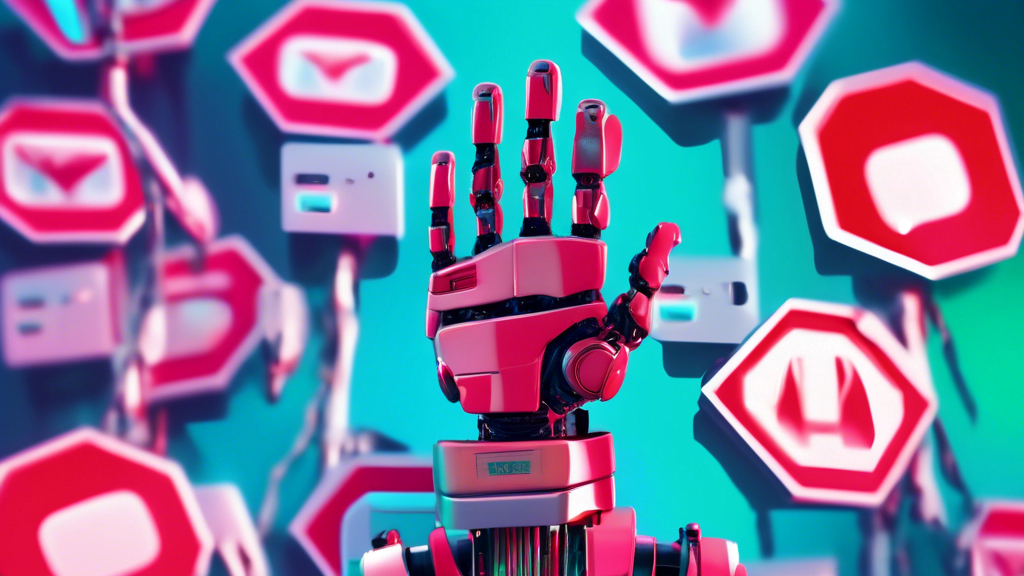YouTube Takes a Stand Against Unauthorized AI Clones
In a digital landscape increasingly populated by artificial intelligence, YouTube has emerged as a frontrunner in addressing the ethical concerns surrounding AI-generated content. The platform recently announced a significant policy update, granting users the right to request the removal of videos featuring AI-generated content that mimics their likeness without consent. This groundbreaking move has sparked widespread debate, raising critical questions about the future of online identity, creative expression, and the very nature of reality in the digital age.
Navigating the Uncharted Waters of AI-Generated Content
The rise of sophisticated AI tools has blurred the lines between the real and the synthetic. Today, creating startlingly realistic deepfakes – videos where individuals appear to say or do things they never actually did – is alarmingly accessible. This capability has profound implications, potentially enabling malicious actors to spread misinformation, manipulate public opinion, and inflict reputational damage with unprecedented ease.
YouTube’s policy update directly confronts this emerging challenge by acknowledging the potential harm of unauthorized AI clones. The platform recognizes that individuals have a right to control their own image and likeness, even in the digital realm. By empowering users to request the removal of videos featuring their AI-generated personas, YouTube is taking a proactive stance in safeguarding individual rights and fostering a safer online environment.
Understanding YouTube’s New Policy
The policy focuses specifically on AI-generated content that impersonates an individual, particularly deepfakes designed to deceive viewers. Here’s a breakdown of the key aspects:
- **Target:** The policy primarily targets videos where AI is used to make it seem like someone is saying or doing something they didn’t.
- **Consent:** The crux of the policy is consent. If your likeness is used in an AI-generated video without your permission, you have grounds to request removal.
- **Exemptions:** The policy acknowledges certain exceptions, particularly content deemed to be parody, satire, or used in educational or artistic contexts. These exemptions highlight the platform’s commitment to protecting free speech and creative expression while still addressing the potential harms of malicious AI manipulation.
How to Request Removal of AI-Generated Content
If you come across a video on YouTube that you believe violates the platform’s new policy, you can initiate a removal request through YouTube’s copyright enforcement system. While the process is designed to be straightforward, navigating the nuances of AI-generated content might require careful documentation and justification for your request.
The Broader Implications for the Future of the Internet
YouTube’s bold move sets a precedent for other online platforms grappling with the ethical and legal complexities of AI-generated content. As AI technology continues to advance at an unprecedented pace, establishing clear guidelines and policies is paramount. Here are some key takeaways from YouTube’s policy update and its broader implications:
- **Balancing Innovation with Responsibility:** The policy strikes a delicate balance between fostering innovation in AI technology and ensuring responsible use. It recognizes the creative potential of AI while setting boundaries to prevent harm.
- **Empowering Users in the Age of AI:** By giving users a mechanism to control their digital likeness, YouTube empowers individuals to navigate the evolving digital landscape with greater agency and control. This shift towards user empowerment is crucial in mitigating the potential negative consequences of AI misuse.
- **A Catalyst for Industry-Wide Action:** YouTube’s proactive approach is likely to influence other platforms to adopt similar policies, leading to a more comprehensive effort to address the challenges of AI-generated content across the internet.
Looking Ahead: Navigating the Evolving Landscape of Digital Identity
As AI technology becomes increasingly sophisticated, the line between reality and fabrication will continue to blur. While the full implications of this technological revolution are still unfolding, YouTube’s policy update signifies a crucial step in the right direction. By giving users the ability to challenge unauthorized AI impersonations, the platform paves the way for a future where individuals have greater control over their digital identities and where the boundaries of online authenticity are clearly defined. The conversation surrounding AI ethics is far from over, but YouTube’s actions mark a significant milestone in our collective journey to navigate the complex intersection of technology, identity, and the future of our digital lives.
